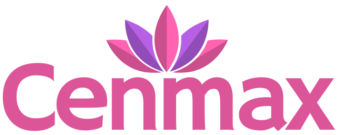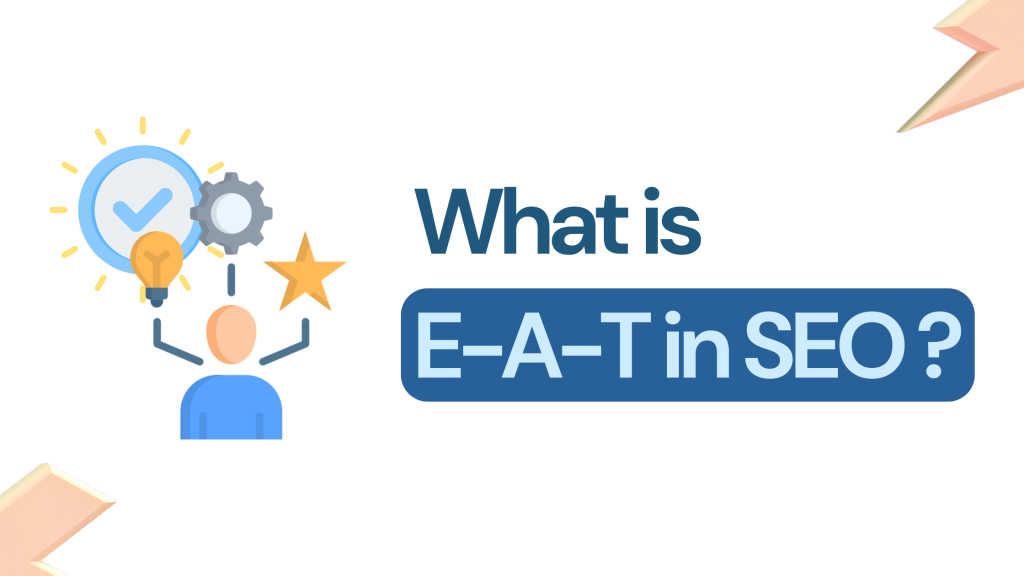Have you ever wondered why some websites seem to dominate search results while others struggle to get noticed? The secret might lie in three simple letters: E-A-T.
E-A-T stands for Expertise, Authoritativeness, and Trustworthiness. It’s a concept that’s become increasingly crucial in the world of SEO and content marketing. But what exactly is E-A-T, and why should you care?
In this post, we’ll dive deep into the world of E-A-T, exploring what it means, why it matters, and most importantly, how you can leverage it to boost your online presence. Whether you’re a seasoned marketer or just starting out, understanding E-A-T could be the game-changer you’ve been looking for.
What is E-A-T?
Imagine you’re at a dinner party. You’re more likely to listen to and trust the person who’s knowledgeable, respected in their field, and has a track record of reliability, right? That’s essentially what E-A-T is about in the digital world.
E-A-T is a framework Google uses to evaluate the quality of web content. Let’s break it down:
- Expertise: The knowledge and skills of the content creator
- Authoritativeness: The credibility of the content creator and the website
- Trustworthiness: The overall reliability and legitimacy of the website and its content
While E-A-T isn’t a direct ranking factor, it plays a significant role in how Google assesses the quality of your content. And as we all know, quality content is key to SEO success.
Why E-A-T Matters
In an era of fake news and misinformation, E-A-T has never been more important. Google’s mission is to provide users with the most relevant and reliable information possible. By prioritizing E-A-T, they’re working to ensure that the content they recommend is trustworthy and valuable.
Consider this: According to a study by BrightLocal, 91% of consumers say that positive reviews make them more likely to use a business. This statistic underscores the importance of trust in the digital realm. E-A-T is Google’s way of extending this concept to all types of online content.
But E-A-T isn’t just about pleasing Google. It’s about building a sustainable online presence that genuinely serves your audience. When you focus on E-A-T, you’re committing to creating high-quality, reliable content that your audience can trust and rely on.
Building Expertise
Expertise is the foundation of E-A-T. It’s about demonstrating that you know your stuff. But how do you build and showcase expertise?
- Create in-depth, well-researched content: Superficial content won’t cut it. Dive deep into your topics, backed by solid research and data.
- Showcase your credentials: If you have relevant qualifications or experience, make sure they’re visible on your website.
- Stay up-to-date: Your industry is constantly evolving. Make sure your content reflects the latest developments and trends.
- Use expert contributors: If you’re not an expert in a particular area, consider bringing in guest contributors who are.
Remember, expertise isn’t about knowing everything. It’s about having a deep understanding of your niche and being able to communicate that knowledge effectively to your audience.
Cultivating Authoritativeness
Authoritativeness is about establishing yourself as a go-to source in your field. It’s the digital equivalent of being the person everyone turns to for advice at that dinner party we mentioned earlier.
Here are some strategies to boost your authoritativeness:
- Earn high-quality backlinks: When reputable sites link to your content, it’s like getting a vote of confidence. Focus on creating link-worthy content and building relationships in your industry.
- Showcase social proof: Customer testimonials, case studies, and social media followers can all contribute to your perceived authority.
- Contribute to other authoritative sites: Guest posting on respected industry blogs can help establish you as an authority figure.
- Engage with your community: Participate in industry discussions, answer questions on forums, and be active on social media.
Building authoritativeness takes time, but it’s worth the effort. As your authority grows, so does your influence and reach.
Fostering Trustworthiness
Trust is the glue that holds E-A-T together. Without trust, expertise and authority mean little. But how do you build trust in the digital world?
- Be transparent: Clearly disclose who you are, what your business does, and how to contact you.
- Secure your site: Use HTTPS, keep your site free from malware, and protect user data.
- Update regularly: Keep your content fresh and accurate. Outdated information can erode trust quickly.
- Provide excellent customer service: Respond promptly to inquiries and address negative feedback professionally.
- Use trust signals: Display security badges, certifications, and awards that demonstrate your credibility.
Trust is like a bank account. Every positive interaction is a deposit, while negative experiences result in withdrawals. Your goal should be to maintain a healthy balance of trust with your audience.
E-A-T in Action: A Case Study
Let’s look at how E-A-T principles transformed the fortunes of the example of a health supplement company we’ll call HealthPlus.
HealthPlus was struggling with low search rankings and poor conversion rates. Their content was thin, their site lacked credibility signals, and they had no clear expert voice.
They implemented an E-A-T-focused strategy:
- They brought in a team of nutritionists and health experts to create in-depth, scientifically accurate content (Expertise).
- They launched a guest post campaign, securing placements on authoritative health and wellness sites (Authoritativeness).
- They revamped their About page, added detailed author bios, and implemented a rigorous fact-checking process (Trustworthiness).
The results? Within six months, HealthPlus saw a 70% increase in organic traffic and a 65% boost in conversion rates. More importantly, they established themselves as a trusted voice in their industry.
Measuring E-A-T
While there’s no direct metric for E-A-T, there are several indicators you can track:
- Organic traffic: As your E-A-T improves, you should see an increase in organic traffic.
- Backlink profile: Monitor the quality and quantity of sites linking to you.
- User engagement: Look at metrics like time on page, bounce rate, and social shares.
- Brand mentions: Track how often your brand is mentioned across the web.
- Customer feedback: Pay attention to reviews and customer testimonials.
Remember, improving E-A-T is a long-term strategy. Don’t expect overnight results, but do expect sustainable, long-lasting improvements in your online presence.
The Future of E-A-T
As we look to the future, we expect E-A-T to become even more crucial. With the rise of AI-generated content, the ability to demonstrate genuine expertise and trustworthiness will be more valuable than ever.
We predict that Google will continue to refine its ability to assess E-A-T, potentially incorporating more nuanced signals like the quality of citations, the specificity of content, and even the writing style.
For content creators and marketers, this means an ongoing commitment to quality, accuracy, and transparency. It’s not just about gaming the algorithm – it’s about truly serving your audience with valuable, trustworthy content.
Conclusion: Your E-A-T Journey Starts Now
E-A-T isn’t just another SEO buzzword. It’s a fundamental shift in how we approach content creation and digital marketing. By focusing on Expertise, Authoritativeness, and Trustworthiness, you’re not just improving your search rankings – you’re building a sustainable online presence that truly serves your audience.
Remember, building E-A-T is a journey, not a destination. It requires ongoing effort and commitment. But the rewards – increased visibility, engaged audiences, and a reputation for quality – are well worth it.
So, where do you stand on your E-A-T journey? Are you ready to take the next step?
We challenge you to take action today. Audit your content with E-A-T in mind. Identify areas for improvement. And most importantly, commit to creating content that truly demonstrates your expertise, authority, and trustworthiness.
Your audience – and search engines – will thank you for it.

